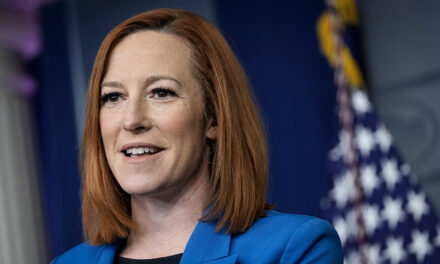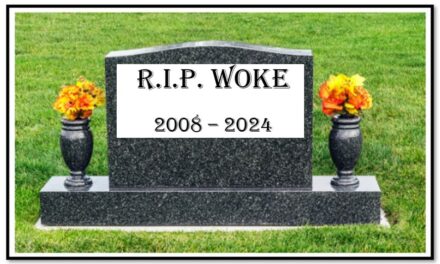We support our Publishers and Content Creators. You can view this story on their website by CLICKING HERE.
South Korean President Yoon Suk Yeol has rescinded his declaration of martial law after facing swift backlash from lawmakers, the Korean public and the international community.
Late night on Tuesday, Dec. 3, Yoon declared martial law supposedly to eliminate “anti-state” forces and protect the nation from pro-North Korean elements in a televised announcement.
Yoon reportedly made the declaration out of frustration with the opposition, which controls the country’s legislature, the National Assembly. He claimed that martial law would help “rebuild and protect” South Korea from “falling into the depths of national ruin.” He even asserted that this would “eradicate pro-North Korean forces and protect the constitutional democratic order.” (Related: South Korea preparing to swiftly eliminate Kim Jong Un and other top Pyongyang officials in the event of an all-out war.)
“I will eliminate anti-state forces as quickly as possible and normalize the country,” he said during the televised announcement.
Under the constitution of South Korea, the president is allowed to impose temporary restrictions on freedom of assembly, the press and other rights during martial law. A simple majority vote in the National Assembly can override the order and compel the president to rescind the martial law declaration.
Following his declaration, thousands of demonstrators gathered outside the National Assembly, with many calling for the reversal of what they saw as an “anti-democratic power grab.”
In response to the demonstrations, police – including riot police – and Republic of Korea Armed Forces troops came out in force to block the entrance to the National Assembly.
“Open the gate, please. Your job is to protect the National Assembly. Why are you standing idly by while MPs are being trampled?” one man filmed by reporters said, shouting at a group of policemen guarding the gate.
The National Assembly, despite orders by the president against convening, voted to nullify the martial law declaration, with 190 out of the legislature’s 300 lawmakers voting to reject it just hours after Yoon’s televised address.
Reacting to mounting pressure, Yoon was forced to retract the order in a subsequent address at around 4:30 a.m. local time on Wednesday, Dec. 4.
“Just a moment ago, there was a demand from the National Assembly to lift the state of emergency and we have withdrawn the military that was deployed for martial law operations,” Yoon said in his second televised address in less than 12 hours. “We will accept the National Assembly’s request and lift the martial law through the cabinet meeting.”
South Koreans call for the impeachment of Yoon
South Korea has not experienced martial law since its return to democracy in 1987 following decades of military-backed rule. The last instance occurred in 1979 following the assassination of long-time military ruler Park Chung Hee during a coup attempt. The recent martial law declaration revived painful memories of the country’s authoritarian past, when military rule led to mass detentions and crackdowns on dissent.
At that time, Gen. Chun Doo-hwan, ordered the arrests of the opposition, the closure of universities, the banning of political activities and the stifling of the press. Chun sent in the military to crush student-led pro-democracy demonstrations and killed nearly 200 people.
“I grew up in an environment filled with fear,” said the 55-year-old teacher Kyung-soo, who lived near the university in Gwangju where many students lost their lives at that time. “Martial law was something I felt deeply and personally. Even yesterday, I was afraid that gunshots might be fired in the National Assembly.”
Kyung-soo, who wanted to go by just his first name when speaking to the media, added that his fear “stems from the actions of a government that seems disconnected from the voices of its people.” He stated that martial law “is not just a distant memory,” but “a painful reminder of how easily democracy can be threatened.”
Calls for Yoon’s voluntary resignation or impeachment by the National Assembly have grown since his attempt to impose martial law on South Korea.
Protests against Yoon retaining the presidency continue. The country’s largest independent confederation of unions has called for a nationwide two-day general strike, and opposition parties in the National Assembly have filed a motion to impeach Yoon.
The impeachment motion needs to be passed with a two-thirds majority vote, or at least 200 votes in favor in the 300-seat National Assembly. Opposition parties hold 192 seats in the legislature and would require only eight votes from Yoon’s governing party, the People Power Party, for the motion to pass. The opposition is hoping to get these votes from the 18 members of Yoon’s party who voted with the opposition to end martial law.
People Power Party leader Han Dong-hoon has said that the party will not support the impeachment complaint against Yoon, and has instead called for Yoon’s cabinet to resign. The party is also attempting to pin the blame of the attempted martial law declaration on Minister of National Defense Kim Yong-hyun, who resigned after the failure of the attempt.
Watch this video of South Korean President declaring martial law.
This video is from Cynthia’s Pursuit of Truth channel on Brighteon.com.
More related stories:
Pentagon: U.S. ready to support South Korea with NUCLEAR WEAPONS.
South Korea could send arms to Ukraine after North Korea deploys troops to aid Russia.
South Korea claims North Korean troops will fight for Russia in Ukraine starting on November 1.
South Korea agrees to spend more to continue hosting U.S. troops.
Sources include:

 Conservative
Conservative  Search
Search Trending
Trending Current News
Current News 





